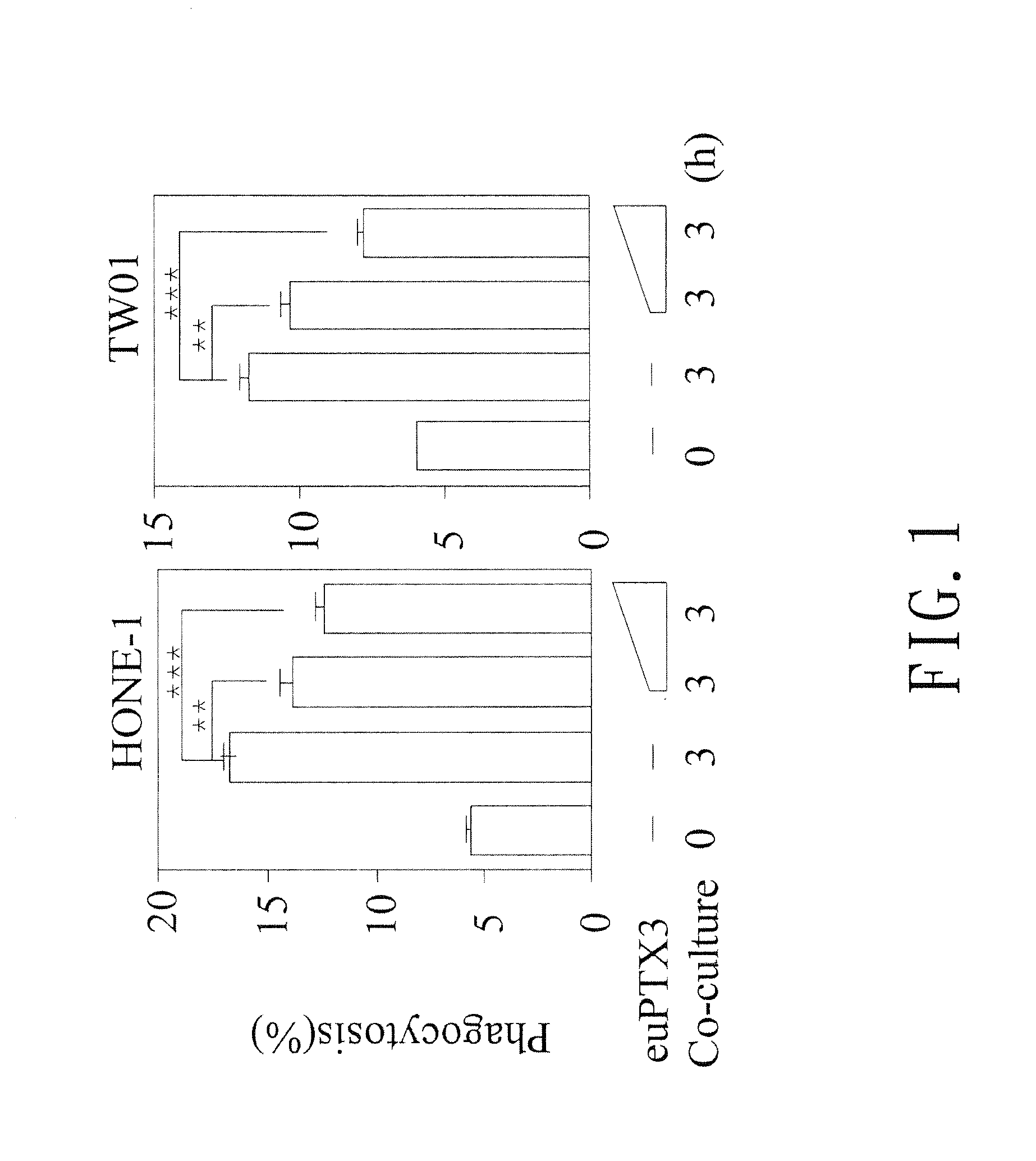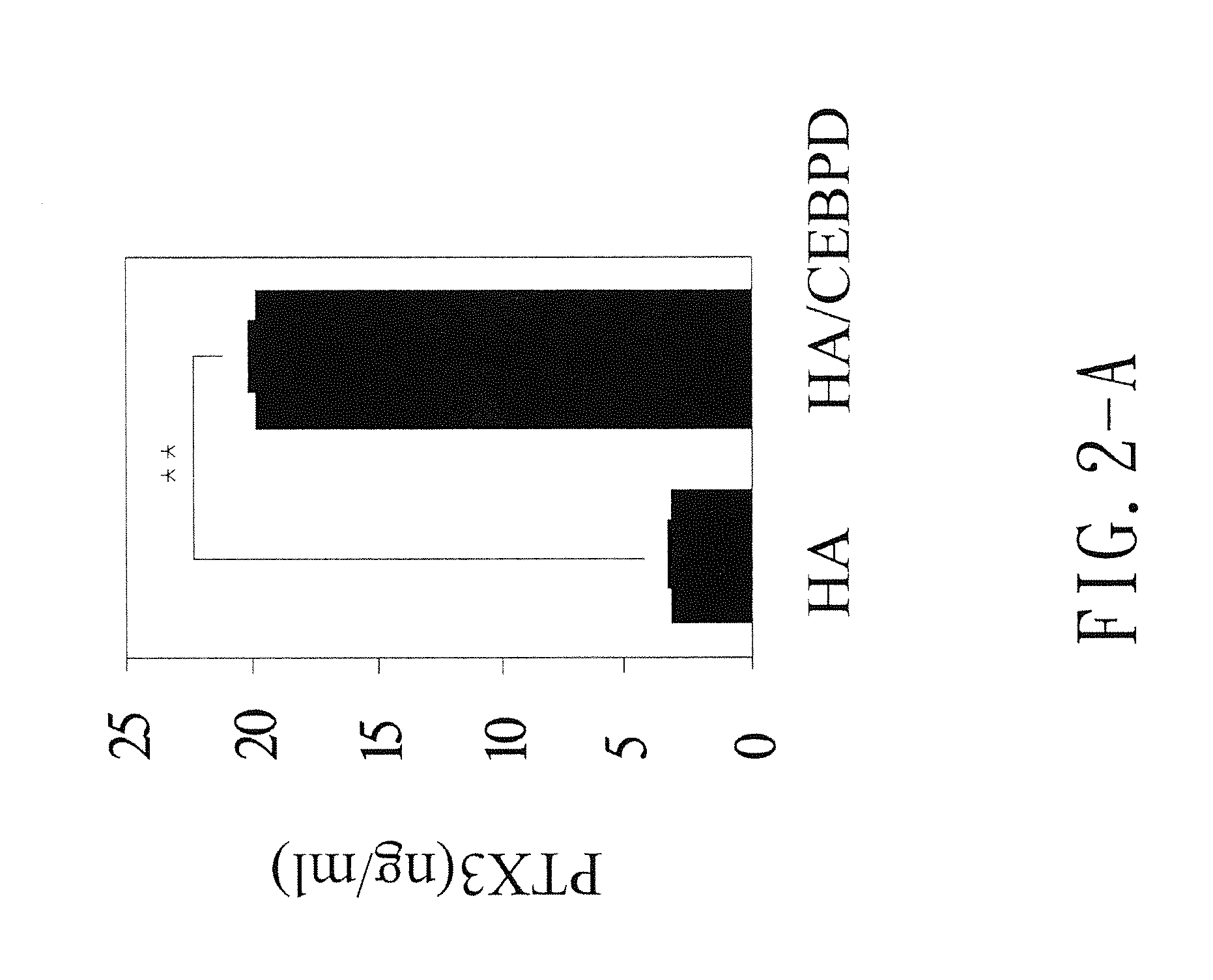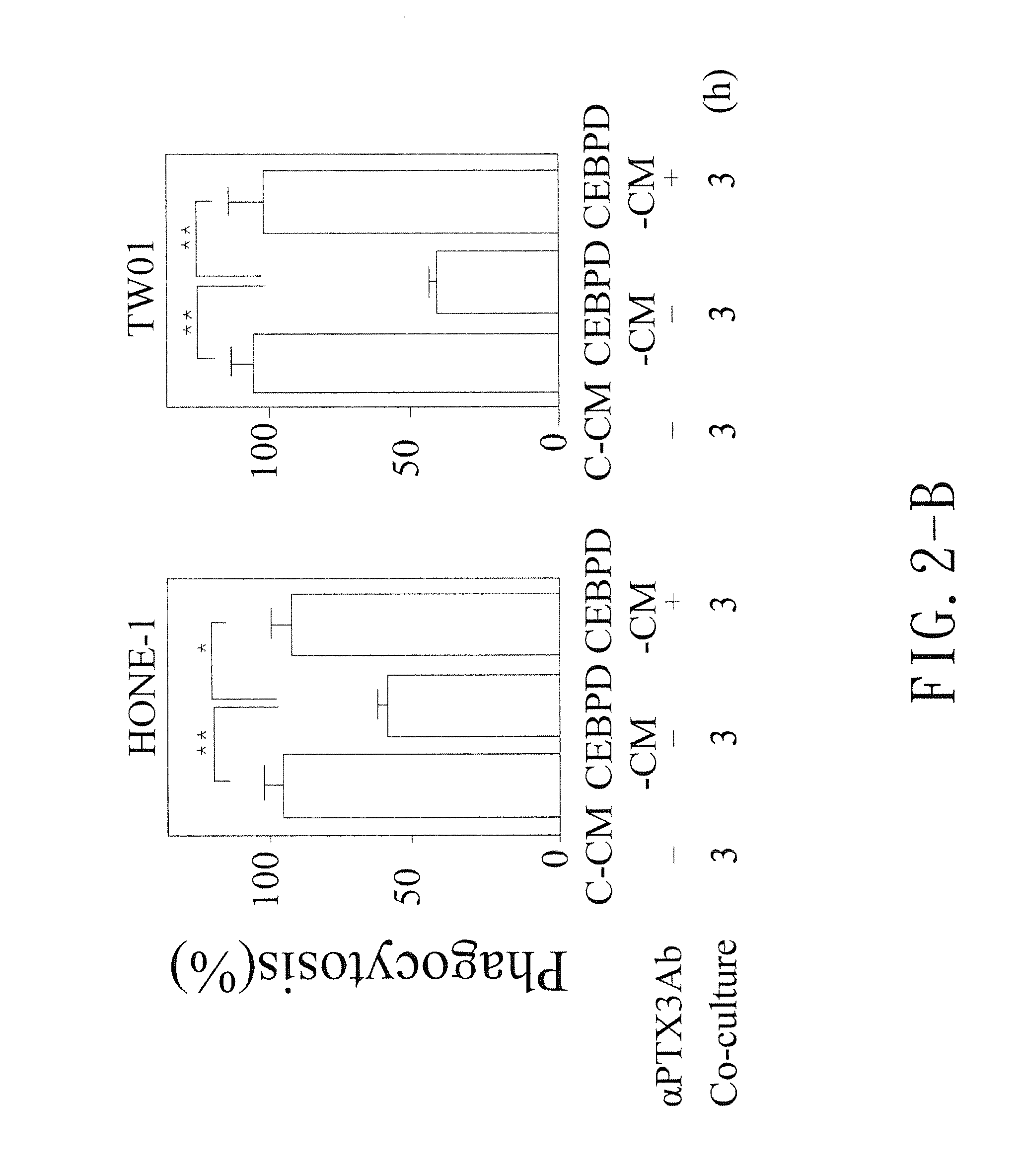Amino acid sequence for inhibiting ptx3 to treat nasopharyngeal carcinoma
a nasopharyngeal carcinoma and ptx3 technology, applied in the direction of peptide/protein ingredients, peptide sources, drug compositions, etc., can solve the problems of poor prognosis and high levels of macrophage infiltration into tumors, and achieve the effects of inhibiting macrophage phagocytosis, promoting migration and invasion, and promoting angiogenesis
- Summary
- Abstract
- Description
- Claims
- Application Information
AI Technical Summary
Benefits of technology
Problems solved by technology
Method used
Image
Examples
example 1
Cell Culture and Treatment
[0033]Different cell lines including THP-1, NPC-TW01 [TW01] and HONE-1 were cultured in RPMI-1640 medium (Hyclone) containing 10% fetal bovine serum (FBS), 100 μg / ml streptomycin, and 100 units / ml penicillin. A mouse lung cancer cell line LLC1 was maintained in DMEM medium supplemented with 10% FBS, 100 μg / ml streptomycin and 100 units / ml penicillin. Mouse bone marrow mononuclear cells were obtained from the femur and tibia of mice and grown in RPMI-1640 medium containing 10% FBS and 25 ng / mL M-CSF (R&D systems Inc.). For mouse macrophage differentiation, mouse bone marrow mononuclear cells were grown in medium containing M-CSF and allowed to adhere. The adherent bone marrow-purified macrophages were then re-seeded in RPMI-1640 medium with 10% FBS. In this study, the dosage of PGE2 (Sigma) applied in every treatment is 15 ng / ml.
example 2
Phagocytosis Assay of euPTX3 Purified from Mammals
[0034]HONE-1 or TW01 were stained with a PKH-26 red fluorescent cell linker kit (Sigma) according to the manufacturer's instructions. 5×104 PKH-26-stained NPC cells were then treated with 300 and 600 ng / ml euPTX3 (purified from eukaryotic mouse myeloma cells, R&D Systems Inc.) or conditioned medium. After removing the PTX3 protein or conditioned medium, the experimental cells were reseeded and co-cultured with PMA-treated PKH-67-stained THP-1 cells for 3 h (the human monocyte cell line, THP-1 cells, can differentiate to macrophages by treating with PMA) and fluorescence signals were analyzed by flow cytometry. Phagocytosis activity was expressed as the percentage of green+ / red+ dual-fluorescent cells in the fluorescein isothiocyanate (FITC+) single-fluorescent cell population. The results as shown in FIG. 1, euPTX3 attenuates NPC cells (HONE-1 and TW01) phagocytosed by activated macrophages. Furthermore, the level of attenuation is d...
example 3
Analyzing the Effect of PTX3 / Ptx3 Purified from Mammals on Macrophage Phagocytosis Activity
[0035]At first, the conditional media were harvested from 1×106 stable THP-1 cells (with pCDNA3 / HA backbone vector) or 1×106 stable CEBPD-expressing THP-1 cells (with pCDNA3 / HA-CEBPD vector). The secreted PTX3 in conditioned media of above experimental cells were detected by human PTX3 ELISA Kit (R&D systems Inc.). As shown in FIG. 2-A, PTX3 is increased in the conditioned medium of CEBPD-expressing THP-1 cells.
[0036]After neutralizing PTX3 in conditioned medium with 1 ug / ml control antibody or PTX3 antibody (ab90807, Abcam) for 4 hours, 5×104 HONE-1 or 5×104 TW01 cells were co-cultured with PMA-treated PKH-67-stained THP-1 cells in above neutralized conditioned media for 3 hours. Phagocytosis activity was analyzed and expressed as the percentage of green+ / red+ dual-fluorescent cells in the FITC+ single-fluorescent cell population. As shown in FIG. 2-B, PTX3 antibody inhibits CEBPD-suppressed ...
PUM
| Property | Measurement | Unit |
|---|---|---|
| pharmaceutical composition | aaaaa | aaaaa |
| red fluorescent cell linker kit | aaaaa | aaaaa |
| fluorescence | aaaaa | aaaaa |
Abstract
Description
Claims
Application Information
 Login to View More
Login to View More - R&D
- Intellectual Property
- Life Sciences
- Materials
- Tech Scout
- Unparalleled Data Quality
- Higher Quality Content
- 60% Fewer Hallucinations
Browse by: Latest US Patents, China's latest patents, Technical Efficacy Thesaurus, Application Domain, Technology Topic, Popular Technical Reports.
© 2025 PatSnap. All rights reserved.Legal|Privacy policy|Modern Slavery Act Transparency Statement|Sitemap|About US| Contact US: help@patsnap.com



